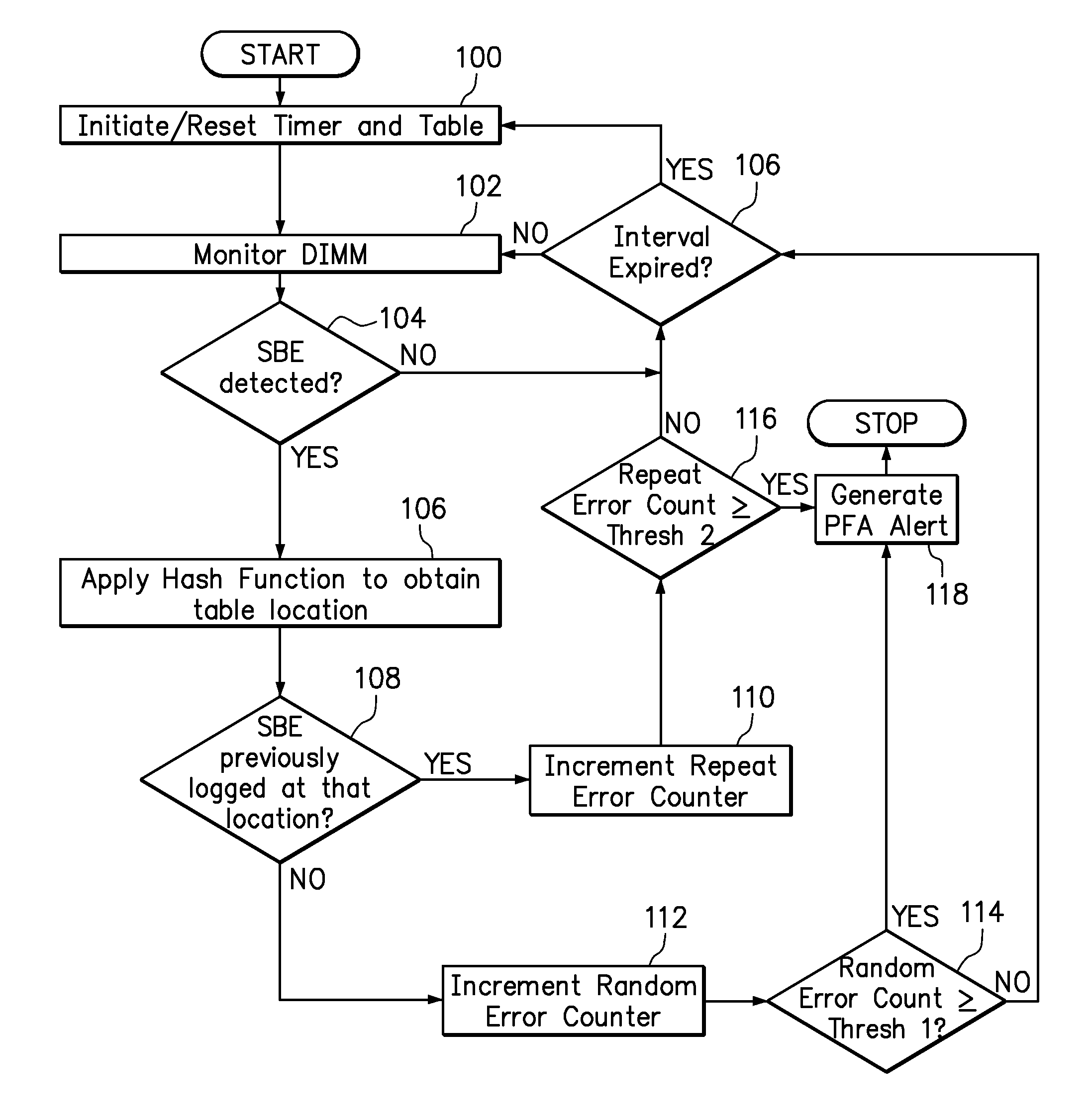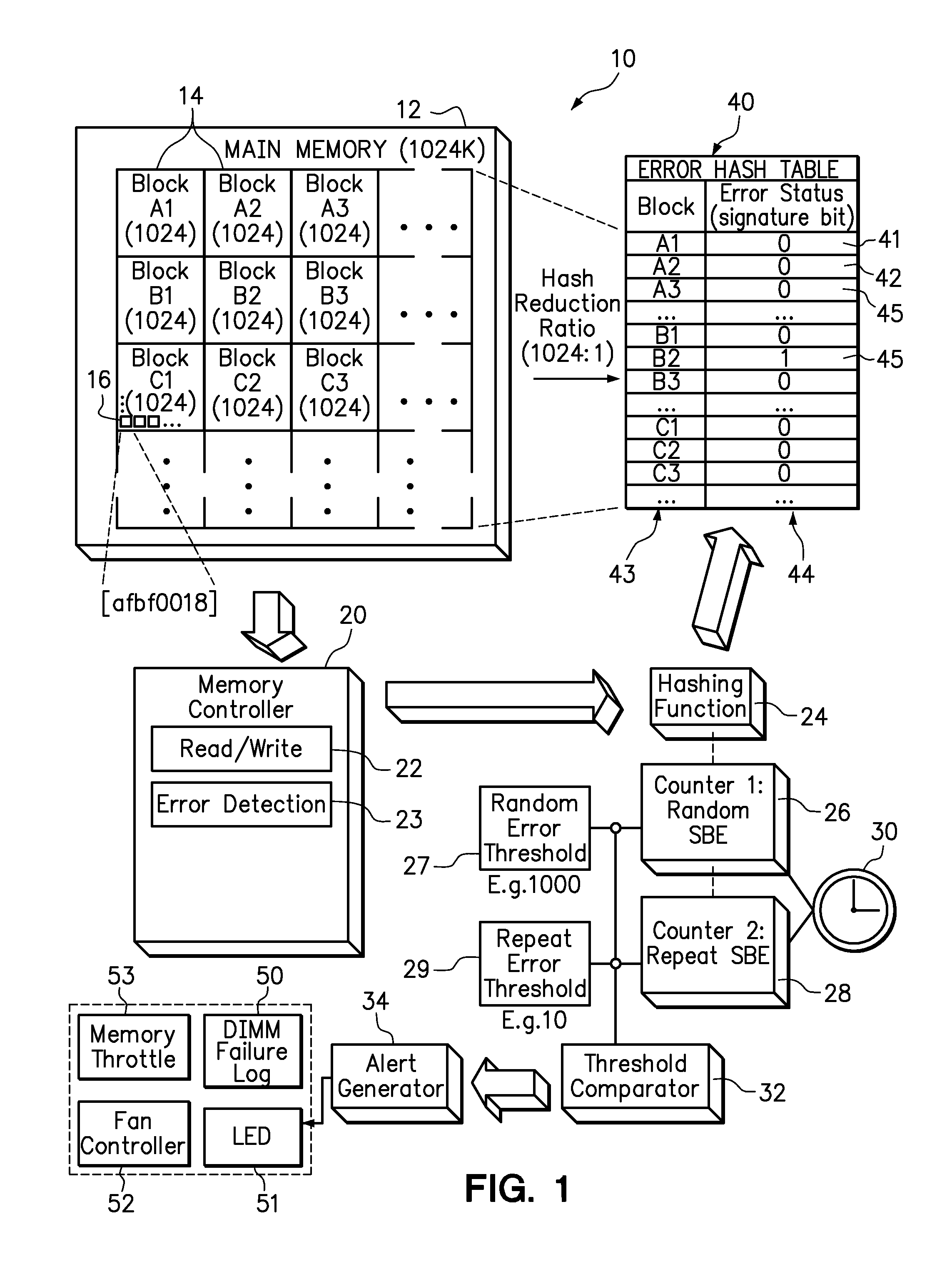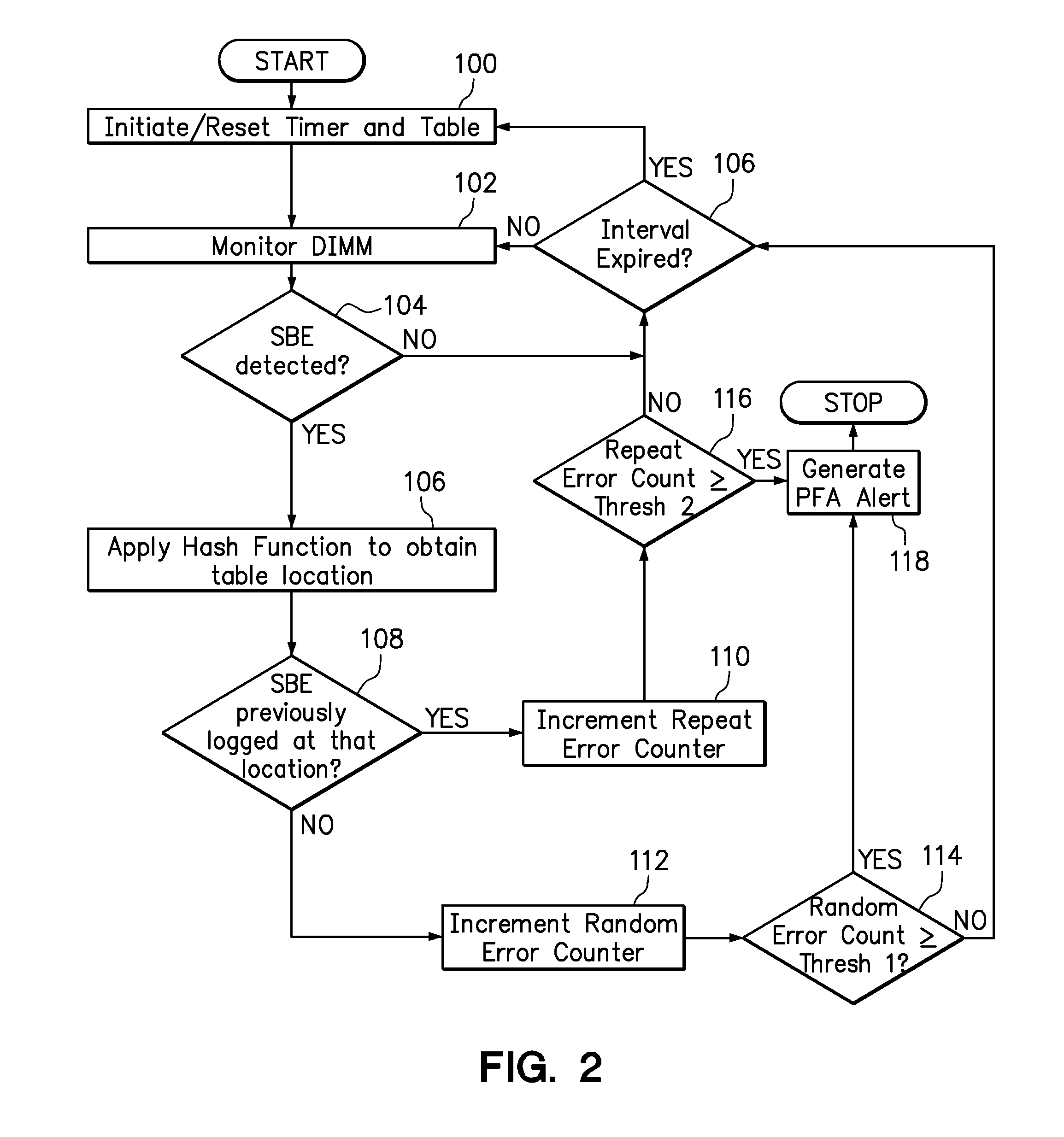Use of hashing function to distinguish random and repeat errors in a memory system
a memory system and random error technology, applied in the field of computer memory systems, can solve the problems of affecting the performance and reliability of a memory system, higher bit error rate (ber) per dimm, and correspondingly higher error ra
- Summary
- Abstract
- Description
- Claims
- Application Information
AI Technical Summary
Benefits of technology
Problems solved by technology
Method used
Image
Examples
Embodiment Construction
[0010]Embodiments of the present invention include a system and method for performing predictive failure analysis (PFA) in a memory system. Each single bit error (SBE) may now be identified as either a random error, which is determined to occur no more than once at a particular memory address or block of memory addresses during a predefined time interval, or a repeat error, which is determined to occur more than once at a particular memory address or at a particular block during the predefined time interval. The numbers of random errors and repeat errors occurring within a predefined time interval may then be compared against different thresholds for the purpose of generating PFA alerts. More particularly, a higher threshold may be set for SBE that are identified as random errors than for SBE that are identified as repeat errors, because random errors are significantly less likely than repeat errors to impact memory performance. Random errors are also less likely to propagate to unc...
PUM
 Login to View More
Login to View More Abstract
Description
Claims
Application Information
 Login to View More
Login to View More - R&D
- Intellectual Property
- Life Sciences
- Materials
- Tech Scout
- Unparalleled Data Quality
- Higher Quality Content
- 60% Fewer Hallucinations
Browse by: Latest US Patents, China's latest patents, Technical Efficacy Thesaurus, Application Domain, Technology Topic, Popular Technical Reports.
© 2025 PatSnap. All rights reserved.Legal|Privacy policy|Modern Slavery Act Transparency Statement|Sitemap|About US| Contact US: help@patsnap.com



